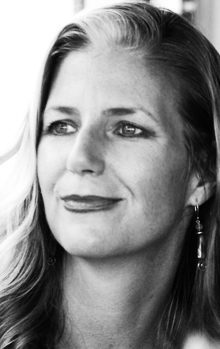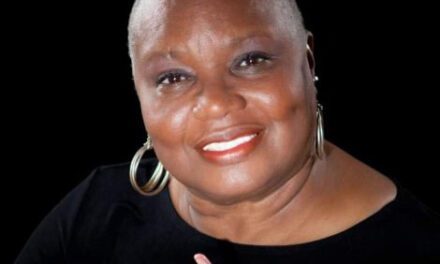 Last week, my husband accused me of being a “critic.” It was one of the nicest things he’s ever said to me.
Last week, my husband accused me of being a “critic.” It was one of the nicest things he’s ever said to me.
“That’s what you are,” he told me, after reading my last column. “You’re a social critic. That’s what you do.” I felt myself blushing like a schoolgirl who’d just been asked to the prom. I’d never really thought of myself – or my column – in quite those terms before, but I liked it. It felt right. Social Critic. Huh.
Before I got too attached to my new title, I figured I’d better make sure I knew what it meant. So like any social critic worth her salt, I went straight to Wikipedia. It was pretty much what I thought. The term “social criticism” refers to that which “locates the reasons for malicious conditions of the society in flawed social structures.” Furthermore, I learned that “people adhering to social critics aim at practical solutions by specific measures, often consensual reform, but sometimes also by powerful revolution.”
I really liked that second part, which seemed to lift the burden of action off the shoulders of the “social critic,” placing it on squarely on those of the social critic’s “adherents.”
Yes, this sounded like a good gig to me. I point out the problems, somebody else fixes them.
Flush with the gravitas of my new designation – visions of H.L. Mencken, George Orwell and Erma Bombeck dancing in my head – I boldly approached my computer, ready to diagnose society with my keen, critical eye. I would take a fine tooth comb to this crazy culture of ours, by golly. I would ruthlessly root out the ills of the day, giving my “adherents” something specific at which to aim their “practical solutions” and their “powerful revolutions.”
I turned my attention, first, to our current revolution – or the closest thing we’ve got to one – the Occupy Wall Street movement. I’ve been in an uncomfortable sort of limbo about OWS. I have so many friends who revere this movement – they seriously hold it sacred – and for that reason, I’ve tried hard to get on board. But as much as I support the values behind OWS, I simply don’t relate to their approach. The whole idea of “occupying” space that isn’t mine – and putting people out! – goes against my goody-two-shoes, rule-abiding grain. I understand that these folks are eager to improve our “flawed social structures” (to use the parlance of my illustrious profession). But as a funny segment on Jon Stewart’s show highlighted last week, just prior to their eviction from Zucotti Park, OWS was in danger of becoming the very thing they sought to correct.
“We’re trying to build a new society… an open, horizontal, leaderless society,” a mohawked young man told Daily Show correspondent Samantha Bee, who then conducted more interviews. What emerged was a picture of the society that had formed at Zucotti Park. Turns out the occupiers, while pursuing total equality and perfect fellowship, had divided themselves into communities that smacked of – dare I say it? – social classes. Said one occupier, “Over there is where the college hipsters go and try to rule the park… Down here, it’s more the poor people’s encampment. It’s kinda contentious.” Bee described the “aristocratic side” of the park (as one interviewee called it) as having a library, an Apple pop-up store, and a bike peddled espresso machine. On the other side of the park were the “downwardly mobile set,” with their drum circles. One among their ranks complained about the “elitists” on the other side, who were “making decisions without the consensus of everybody in the park.” Not just classes… but class envy! In two short months. This, of course, was all in good fun. Just a bit of light satire on a comedy show. But these were real OWS’ers, not actors, and the story they told was true. The society they described was… well, familiar.
My take – speaking as a social critic, of course – is that an “open, horizontal, leaderless society” is a beautiful concept, but not a realistic one. It seems that no matter where we pitch our tents, we always bring ourselves along. The dark side of human nature always shows up.
I was still whittling away at that idea as I turned to another big story that’s been burning up the Internet – the Penn State scandal. No shortage of social criticism there, huh? Everybody’s got a theory about how and why these terrible atrocities were allowed to happen – and keep happening – over such a long period of time. Some have blamed the chain of events on the culture – or “social structure” – of college football. Others have likened Penn State football to the Catholic Church – focusing on the similar scandals – thus raising another “social structure” to be examined for flaws. More than anything, there’s been outrage – lots and lots of outrage – directed at Joe Paterno and assistant coach Mike McQueary. The general consensus – among social critics, both amateur and professional – is that we would all have behaved much better than they did, had we been in their shoes.
In a column in last week’s NY Times – brilliantly titled “Let’s All Feel Superior” – David Brooks all but calls BS on that notion. Brooks is one of the most interesting, fearless social critics around, I think. He’s interesting because he’s interested… in people. In how people really are, not just how we think we are. I call him fearless, because he doesn’t hesitate to tell us how we are… even if it means endangering our collective self-esteem, that sense of self-righteousness we moderns cling to for dear life. (He even traffics in ancient, discredited concepts like “vanity” and “sin,” which I find almost thrillingly subversive for a contemporary public intellectual.)
“Over the course of history,” Brooks writes, “– during the Holocaust, the Rwandan genocide or the street beatings that happen in American neighborhoods — the same pattern has emerged. Many people do not intervene. Very often they see but they don’t see… Some people simply can’t process the horror in front of them. Some people suffer from what the psychologists call Normalcy Bias. When they find themselves in some unsettling circumstance, they shut down and pretend everything is normal.”
Brooks goes on to explain many other tricks the human mind uses to protect itself from trauma. Apparently, we are very good at self-deception and self-justification. In the past, Brooks says, we knew this about ourselves. We built moral systems that acknowledged this weakness… systems which emphasized our sinfulness, helping us recognize its manifestations and exercise discipline over them.
But today, we live in a society oriented around our basic “inner wonderfulness.” (Brooks’ phrase, which I love!) So when something unspeakably terrible happens, we start looking around for some outside force, some impersonal organization or “social structure” that must have caused it. College football, organized religion, capitalism, socialism, the Republicans, the Democrats… whatever. We all have our favorite bogeymen, and we denounce them as frequently, and vociferously, as possible… all from our towers of innocent virtue.
It’s deliciously satisfying to rail at “them,” isn’t it? I do it all the time! “How could they have let this happen? What were they thinking?” But what we really should be doing, according to David Brooks, is looking in the mirror and asking, “How can we overcome our natural tendency to self-deceive and evade?”
Society does not evolve in a vacuum. Its “malicious conditions” (see above) do not appear out of thin air. In a free country, society is only as good as the people who make it up. Looking around at ours, you’d think we’d have gotten the hint by now. But it’s so easy to complain about “social structures.” You know what’s hard? Taking an honest look at the human heart in all its glory and wretchedness.
I’m just a two-bit small town social critic, so I don’t know for sure… but it seems like maybe the best hope for improving our “social structures,” is to stop kidding ourselves that they are the problem.





